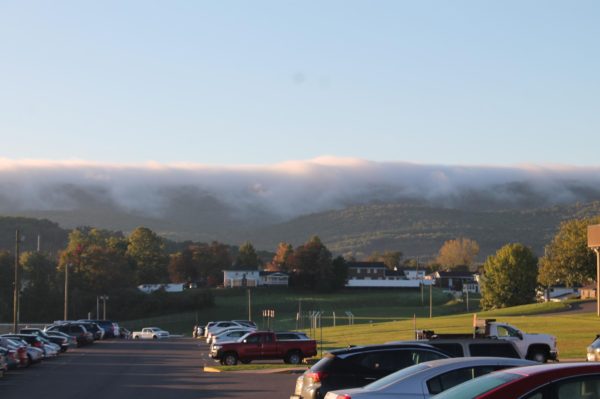Russo-Ukrainian conflict
Since February 24th, Russia and Ukraine have been embroiled in a war that has swept its influence across continents, polarizing people and economies alike due to its sheer complexity. The Russian Federation, under Vladimir Putin, has stated that they must go to war for, as Putin states, “Focused on their own goals, the leading NATO countries are supporting the far-right nationalists and neo-Nazis in Ukraine, those who will never forgive the people of Crimea and Sevastopol for freely making a choice to reunite with Russia. They will undoubtedly try to bring war to Crimea just as they have done in Donbass, to kill innocent people just as members of the punitive units of Ukrainian nationalists and Hitler’s accomplices did during the Great Patriotic War. They have also openly laid claim to several other Russian regions. If we look at the sequence of events and the incoming reports, the showdown between Russia and these forces cannot be avoided. It is only a matter of time. They are getting ready and waiting for the right moment. Moreover, they went as far as aspire to acquire nuclear weapons. We will not let this happen.”
Of course, this is one of the many reasons why Russia has decided to launch its “special military operation” against Ukraine, but as it stands, this is a good driving factor as to why they’re invading the country in the first place, from their perspective at least. From the Ukrainian side of things, president Zelenskyy has stated, “We know for sure that we don’t need this war. Not a cold war, not a hot war. Not a hybrid one. But if we are attacked by [enemy] troops, if they try to take our country away from us, our freedom, our lives, the lives of our children, we will defend ourselves. Not attack, but defend ourselves. And when you attack us, you will see our faces, not our backs, but our faces.”
Of course, all of this has spawned opinions from all sides. People preaching intervention, others neutrality, some asking for peace, and some demanding that the war ought to continue for a while. All sorts of views are held by all sorts of people, and it’s hard not to be fascinated by some opinions held by others. The die-hard Ukrainian soldier probably has an aneurysm whenever he hears of another town falling to Russian forces. The weary Russian soldier might sigh and grumble various profanities at the fact he has a couple miles to march, or ride before he can rest his head on something that isn’t the headrest of whatever civilian vehicle that has been repurposed for the war effort. Some outside of the conflict; In America, in Asia, in Western Europe, and in South America, might find themselves in a similar boat to the Ukrainian soldiers. Ex-military might want to join up, and plenty have. There’s been a lot of foreign volunteers sent to the war, from a bunch of different countries, and a lot of them seem to have fallen for the Ukrainian propaganda. Ukraine is still getting conquered, they’re putting up a fight, but the Russians are advancing, and those Russians aren’t taking too kindly to all the non-Ukrainians coming over to fight. On the Russian side, the most ardent of Putin supporters, or one the countless members of the “Russian hardware is battle-hardened, and is much more reliable/better than the West’s equipment,” seem to freeze up when the pictures of shattered “modernized” T-72’s are observed. Of dead Russians, and that one train holding all the requisitioned civilian vehicles that are needed to transport all manner of things for the war. These people are also quick to talk about the Azov Battalion and such, but that’s a story for another time. As it goes, some students have opinions about this situation. A lot of them do, and here are their opinions on this whole situation so far:
-Emily Eisenhauer “We should help Ukraine, but not go all in as to start a war with Russia. We shouldn’t just let a country get trampled, we have ethics to uphold.”
-Mr. Carey quotes MLK, “Injustice anywhere is a threat to justice everywhere.”
-Rylie Lewis “I get that they’re our ally, but war is bad. If we do go to war with Russia, we’d need troops to protect all of our territories and Ukraine.”
-Mr. Zubritski “We shouldn’t get involved militarily, but we should supply them with military aid.
-Ms. Muench “No, but if certain lines are crossed, we should.
-Mr. Litch “We shouldn’t get involved right now, but should the situation change for the worse, we should.
-David Howell “America wasn’t meant to stop these things, it was meant to preserve freedom.”
-Mackenzie Hall “I feel bad with what’s happening to the Ukrainian people, and I wish we could do more, but we shouldn’t provoke Putin.
-Camron Svetz “We should get involved, we’re allied with Ukraine, and we ought to bring Putin to heel.”
-Zack Ary “We shouldn’t get involved in Ukraine because Russia would probably stomp us.”
-Nick Matson “We should let it play out and wait to see if it goes nuclear, then we should step in.”
-Stephen Armstrong “Putin’s a psychopath and no one wants to get involved in his business.
-Ethan Spencer “We should get involved because the Russians are committing war crimes.
As for my own opinion on the matter, I have this to say: America has no obligation to anyone outside of America, to send its military over and start kicking things around. We’re a global superpower, yes, but risking nuclear war, letting the cost of gas and such fly up due to the sanctions against Russia, isn’t worth it. My best wishes go to the people of Europe in this crisis, especially the Ukrainians, but the cost of going to war here would be too high, and frankly, as I said before, it isn’t worth it. Nothing ever good happens from our intervening in other countries, we saw it in Afghanistan, look at what we did to that country. Observe Iraq, which we invaded because Bush said the Iraqis had WMDs, which they didn’t. Take a look at all the garbage we’ve stewed in Central America, and in South America, to protect the interests of fruit companies, or “friendly” and “democratically elected” regimes. The only people who would benefit from a war between the US and Russia are defense contractors, war profiteers, and other such types. We have no business in Eastern Europe, nor do we have any business being in the Middle East, or Asia, it’s a waste of blood and I can’t help but feel America loses a piece of itself daily, maintaining such a vast empire worldwide. As Mark Twain said, “America cannot have an empire abroad and a Republic at home.” I want what’s best for the American people, and of course, our military might ought to be used when the people are threatened, but one must remain vigilant in these times. There are a few exceptions to my words here where foreign intervention ought to happen, like if the Russians started murdering Ukrainians en masse, which is unlikely. Or a government-sanctioned terrorist group started killing civilians in some country across the foam. Then America may intervene in their affairs, for they have interfered in ours.
In reality, this entire war has been going on for 8 years now. This entire situation is just the most recent spike in violence between Ukraine and Russia, which has now escalated into an official war. It all started, as a lot of unfortunate situations do, with protests leading into what was called the “Revolution of Dignity.” Though, before we discuss this, we must start by looking at what led up to it. It all started when the Ukrainian government at the time, led by President Viktor Yanukovych and the Azarov government, which were said to be highly corrupt, and very pro-Russian, decided on a whim not to sign the European Union-Ukraine Association Agreement, and instead pursued closer ties with Russia and its Eurasian Economic Union. This, understandably, enraged a decent chunk of the population of Ukraine, mostly in the Western portion of the country, who supported the former agreement with the EU. On the contrary, a bit of the eastern regions of the country supported the more pro-Russian endeavors and was also understandably angry when something called “Euromaidan,” or the Maidan Uprising, began. This was a wave of protests, demonstrations, and general civil unrest that began in Maidan Nezalezhnosti, also known as Independence Square, which is where the whole movement gets its name. As the protests and unrest grew, calls for President Yanukovych and his government to resign started to get really loud. From the eyes of the protesters, they were fighting against horrid government corruption, oligarchical influence, the abuse of power from the powers that be, and a violation of human rights. Things really began to heat up after November 30th, when the protesters in the square were violently dispersed by Berkut special police units using batons, stun grenades, and tear gas, all the while cell communication was completely cut off. Protesters weren’t the only ones injured in these attacks, but by-standing civilians were harmed as well as the square was completely cleared by the police. All in all, 79 people were injured during the attacks, with 10 hospitalized. This lead to a lot of anger amongst the masses of protesters, and on the same day, a spontaneous meeting that had representatives from 10 different EU countries in St. Michael’s Square near the St. Michael’s Monastery met with 5,000 protesters, who were busy chanting things such as “Won’t forgive” and “Revolution.” When the evening came to a close, approximately 10,000 protesters remained, with another 10,000 on the way.
This all came to a head during the Revolution of Dignity, where the large camp set up in Independence Square by the protesters, guarded by “Maidan Self-Defense Units,” which were clad in improvised uniforms and helmets, armed with sticks, shields, and petrol bombs. On December 1st, clashes with police began, further raising tensions, and on December 11th, the camp was assaulted by police. Tensions grew, even more, when anti-protest laws were passed by the government, and skipping ahead by about a month, on January 19th to the 22nd, deadly clashes between police and protesters happened on Hrushevsky Street. Protesters began to promptly occupy government buildings all over Ukraine, and everything climaxed on the 18th of February to the 20th, where fierce fighting between protesters and police forces in Kiev left 100 protesters dead, and 13 police dead as well. On the 21st of February, an agreement between President Yanukovych and leaders of his parliamentary opposition stated that they wanted to create an interim unitary government, constitutional reforms, and early elections. Within a short period of time after the agreements, Yanukovych and his ministers fled the country, and the Ukrainian parliament officially removed him from office. This led to the official declaration of the aforementioned interim government.
Of course, all of this unrest wasn’t just occurring in the western portion of the country, in places like Donbas and Crimea. Pro-Russian sentiment brewed there, and armed separatists began rising up in opposition to the whole Revolution and ousting of the apparently pro-Russian Azarov government. This fighting also spread to the Crimean Peninsula, which is, as many know, where Russia made its first land grab in Ukraine. Russian forces invaded the peninsula in February and ended their altercations in March when it was formally integrated into Russia proper. It began with simple pro-Russian demonstrations in Sevastopol, Crimea’s largest city. Next came apparent masked Russian soldiers without any of their identifying insignia, who took the Supreme Council, or parliament, of Crimea. These seizures continued to happen for a period of time, strategic positions being taken in much the same ways as the parliament building. A pro-Russian government headed by Sergey Aksyonov was established in Crimea, and then came the much controversial referendum for the independence of the peninsula. It got voted in, and on March 16th, Crimea officially declared independence from Ukraine. On the 18th of March, Crimea was incorporated into the Russian Federation as two separate entities: The Republic of Crimea, and the Federal City of Sevastopol. After the official integration, Russia increased its military and nuclear presence in the region, further cementing its control of the peninsula.
And now, since there, there has been a constant struggle in eastern Ukraine against pro-Russian separatists. For 8 long years, it has brewed and bubbled, the cauldron lid sputtering and shaking until recently, with the invasion of Ukraine proper, the lid blew off and all the tension in the regions and in the two countries proper exploded in a warring frenzy. The nastiest concoction of military complexes spewed from this now opened cauldron, and the threat of more wars breaking out in Eastern Europe seems like a real possibility rather than a “what if” question. At the end of the day, it is this writer’s humble opinion that is this: I wish the best for the people of Russia and Ukraine, and I hope peace, however stable or strained it is, occurs soon. Whether one agrees with this sentiment, is up to them, this article wasn’t meant to change opinions, it was meant to inform.

My name is Xavier Skillens, I’m 17 years old and a senior here at GNA. I’ve been a student here at GNA all my life, having been in the district since...







